Are you looking to elevate your next event with delicious food and impeccable service? Whether it's a wedding, corporate gathering, or a casual get-together, finding the right catering service can make all the difference. In this article, we'll guide you through the essential factors to consider when inquiring about catering services, ensuring your celebration is a unforgettable feast. So, let's dive in and discover how to choose the perfect catering partner for your special occasion!
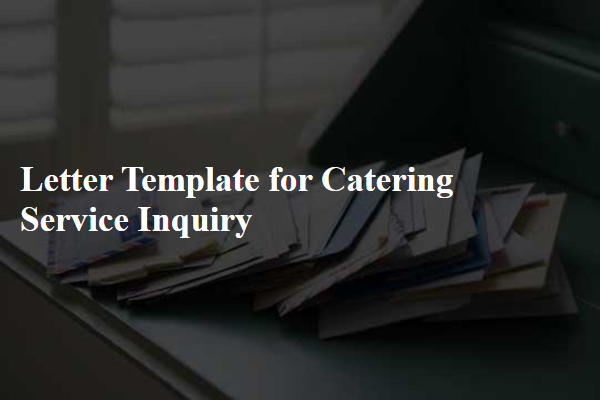
Contact information.
Catering services play a crucial role in events, providing essential food and beverage arrangements for various occasions. Details such as event type (e.g., weddings, corporate gatherings, or birthday parties) significantly influence menu choices and service styles (e.g., buffet or plated). Factors like guest count, dietary restrictions, and preferred cuisine (e.g., Italian, Asian, or barbecue) are also important. Additionally, location (city or venue name) impacts availability and transportation logistics for the catering team. Understanding the budget range allows for tailored proposals that meet client expectations and culinary desires. Key dates, including event dates and any pre-event meetings, are also vital for coordination.
Event details.
For a successful catering inquiry, it's essential to provide event details thoroughly. Essential aspects include the event date, for instance, November 15, 2023, and the duration, such as starting at 4 PM and concluding at 10 PM. An estimated guest list of 150 attendees can significantly influence menu selections and staffing requirements. Location details, like the Grand Ballroom at the City Convention Center, which boasts a capacity of 300 persons, are crucial for logistical planning. Additionally, dietary restrictions, such as gluten-free or vegetarian options for guests, should be specified. A budget range, perhaps between $5,000 and $7,000, guides the caterer in proposing suitable services, including buffet or plated meal options and beverage packages. Finally, any theme or specific cuisine preference, like Italian or barbecue, should be communicated to ensure alignment with the event's atmosphere.
Menu preferences.
When planning an event such as a wedding reception (a significant social gathering), one key consideration involves menu preferences (specific food and drink selections) for catering services. Different dietary requirements are crucial, including gluten-free, vegetarian, and vegan options to accommodate diverse guest needs. Seasonal ingredients often enhance the menu's appeal while ensuring freshness; for instance, using local produce during the summer months (June to August in the Northern Hemisphere) can elevate flavor profiles. Additionally, portion sizes must be carefully considered, as appetites can vary among guests. Combining various cuisines--Italian, Mexican, and Asian--allows for a broader culinary experience. Catering services often provide options for plated dinners or buffet-style layouts, each impacting guest interaction and service style, which should align with the event's overall atmosphere. Timely consultation with the catering team can ensure the menu aligns with vision and budget constraints, making food choice a delightful and essential aspect of the event planning process.
Budget constraints.
Popular catering services, such as those in the Los Angeles area, often accommodate budget constraints for events, including weddings and corporate gatherings. Prices can range significantly from approximately $15 to $150 per person, depending on the menu selection, service style, and additional features like decor and staffing. For a budget-friendly option, consider buffet-style service, which typically costs less due to reduced labor. Additionally, simplifying menu choices or opting for a limited selection of hors d'oeuvres can lead to savings while still providing diverse options. Be sure to inquire about package deals or off-peak pricing, as many caterers may offer discounts during non-peak seasons or days. Engaging in open communication with catering managers can help clarify options that align with financial limitations while ensuring quality service and memorable culinary experiences.
Special requirements.
Catering services often encompass a range of considerations, including dietary restrictions, food presentation standards, and logistical needs for events like weddings or corporate gatherings. Special requirements may include gluten-free options for guests, kosher or halal meal preparations per religious guidelines, and allergen-free dishes to accommodate individuals with specific allergies. Additionally, equipment such as chafing dishes, serving utensils, and proper refrigeration units must be mentioned to ensure food safety and optimal service. Event details, like the location (e.g., community center or outdoor venue) and date, play a crucial role in planning the catering logistics to ensure timely setup and quality delivery. Special requests for unique menu items or themed decorations can significantly enhance the overall experience for attendees.

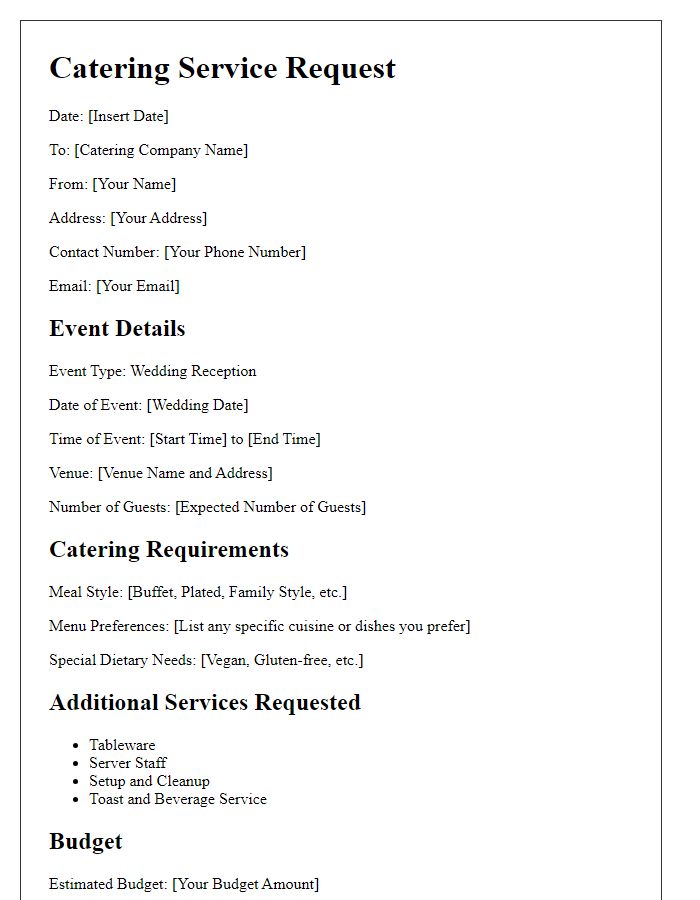
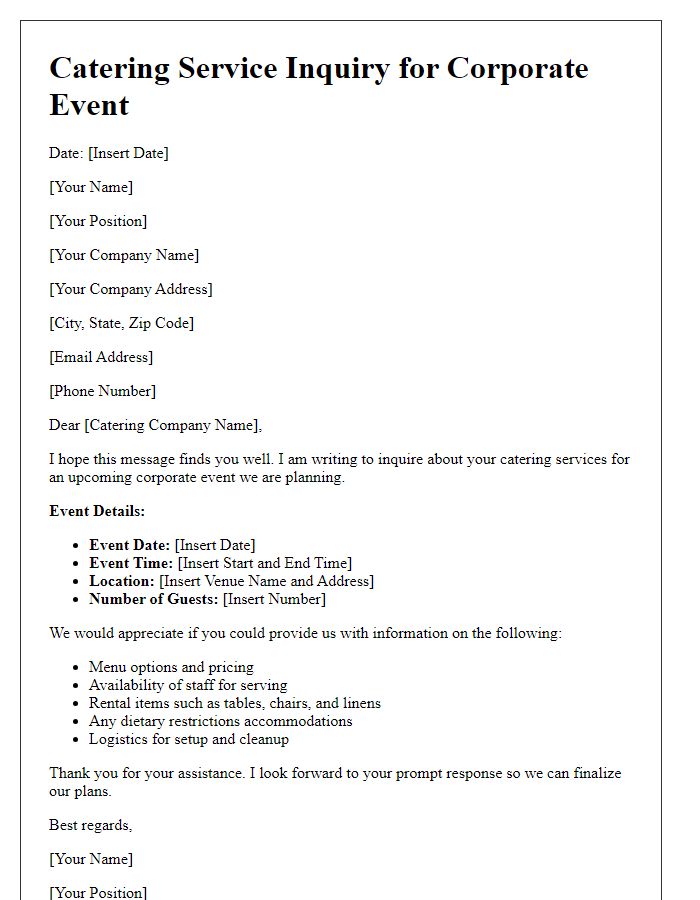
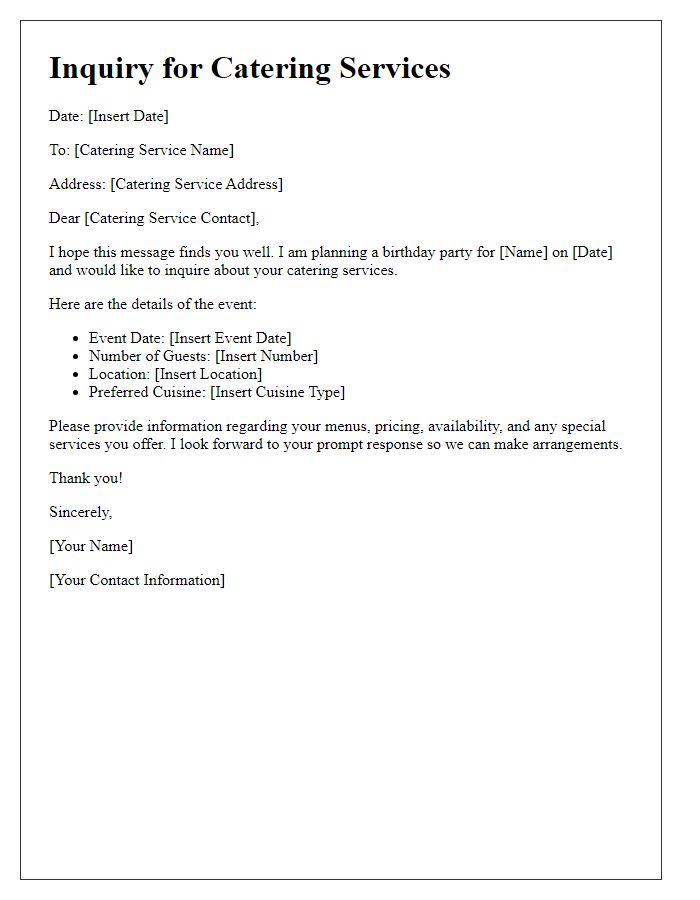
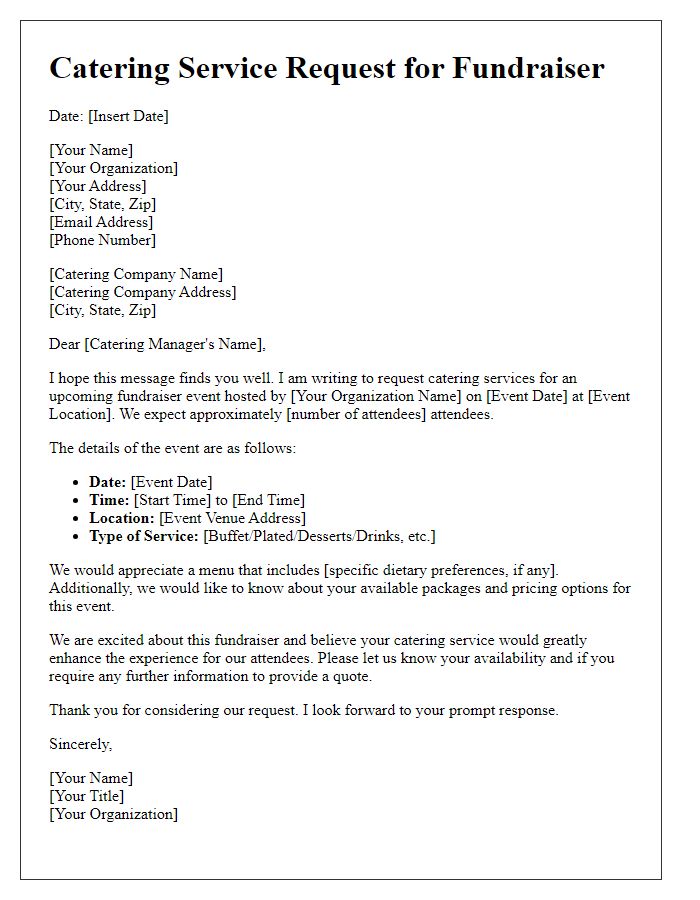
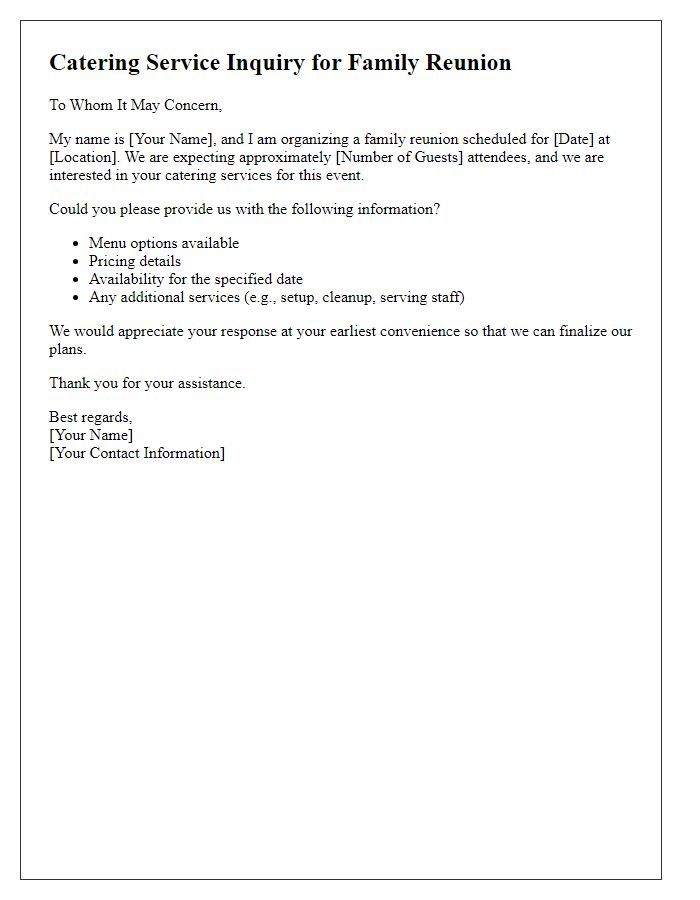
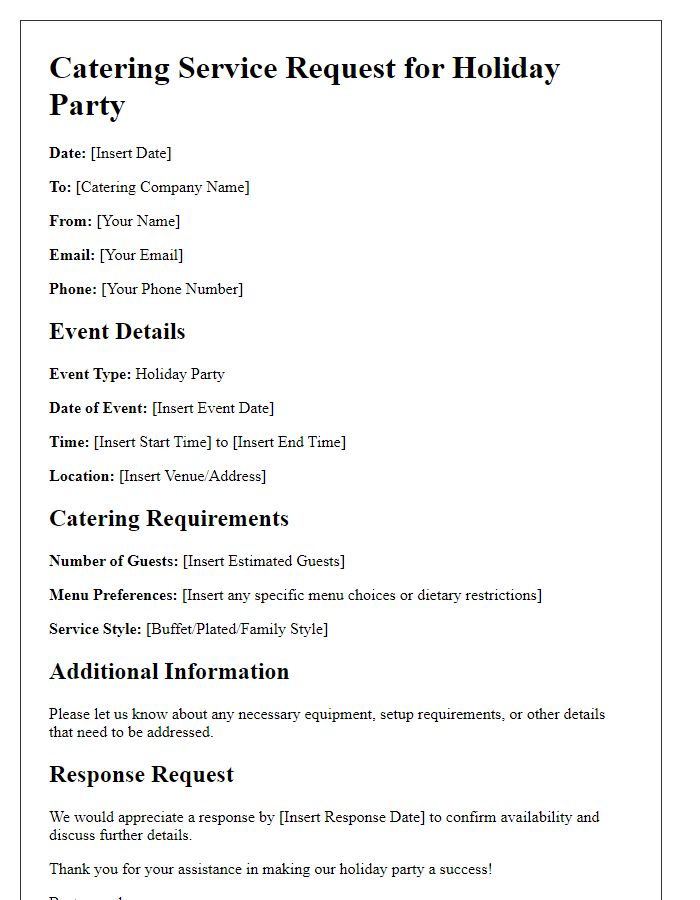
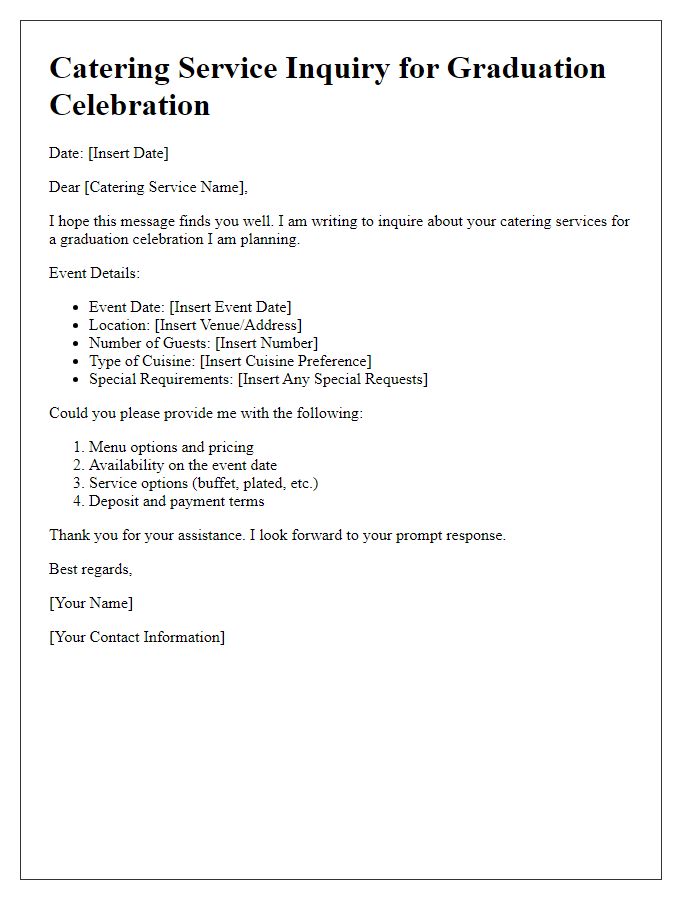
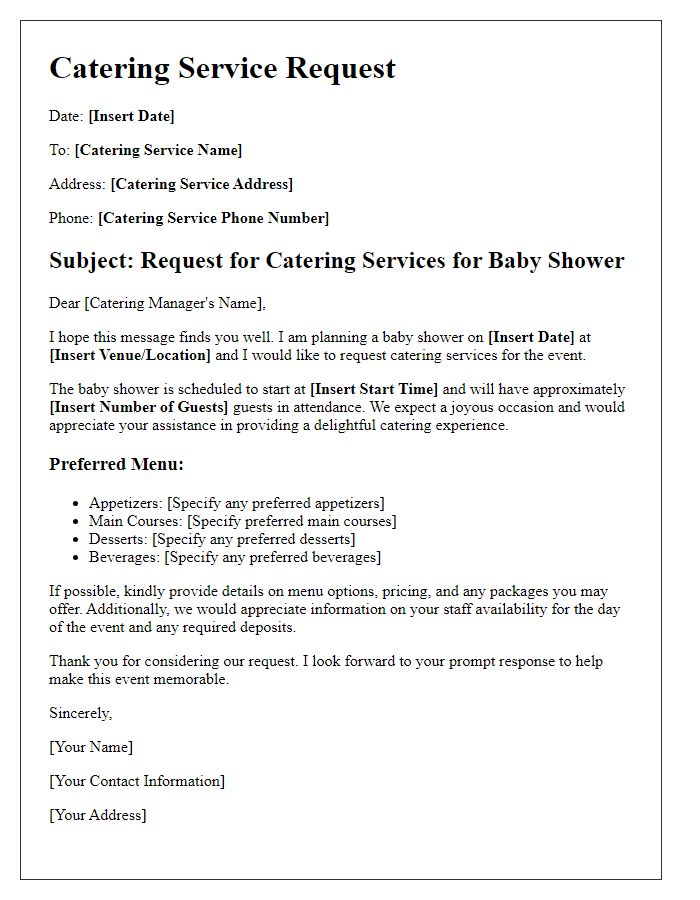
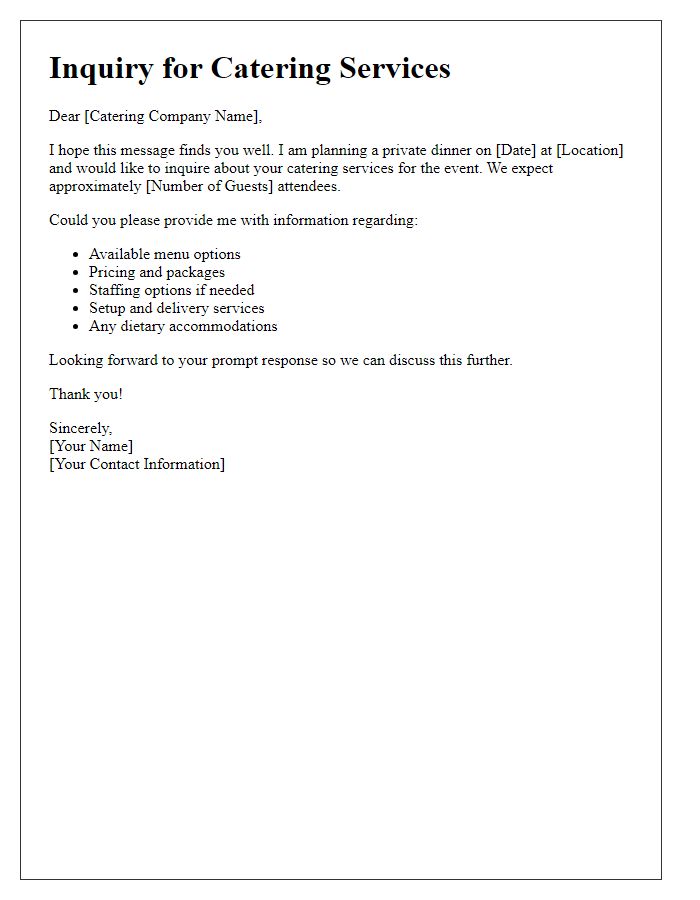
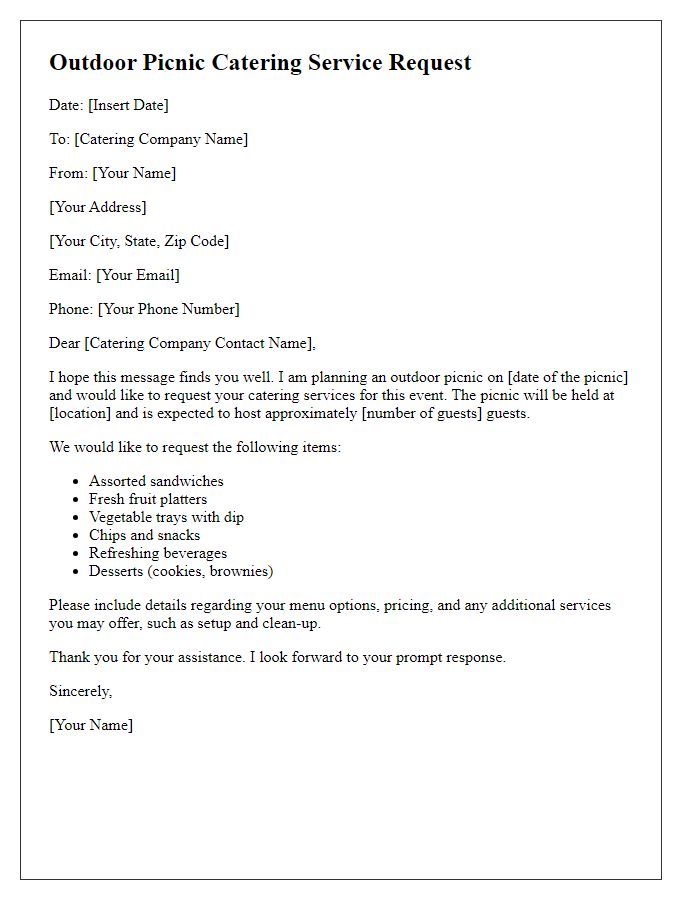


Comments